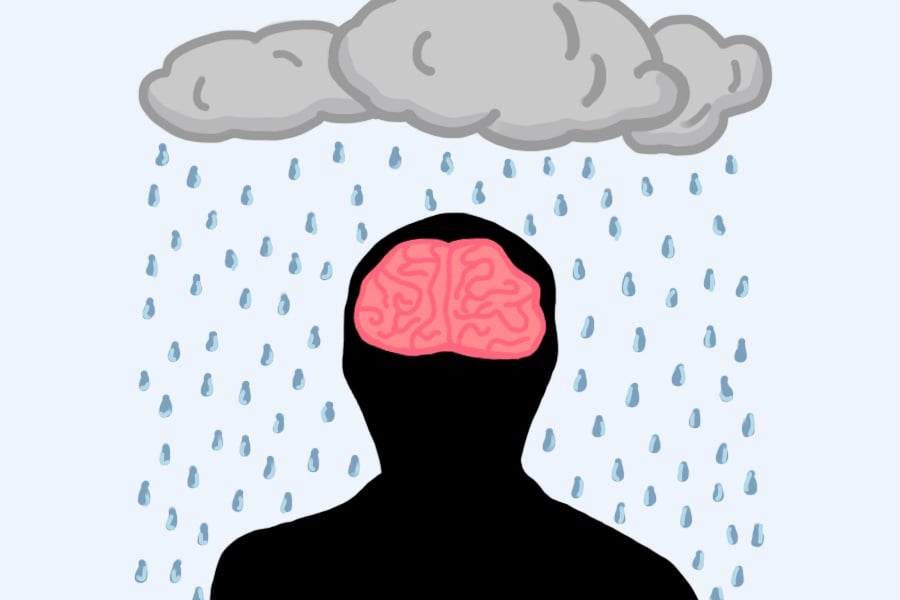Spread across the globe, NU students struggle with their mental health during virtual learning
File illustration by Emma Ruck
As academic stress increases, students struggle to maintain their mental health.
October 15, 2020
With Fall Quarter in full swing, Northwestern students are dealing with academic stress amid pandemic isolation and a turbulent social and political climate, compounding mental health struggles.
Weinberg sophomore Santi De La Torre is living at home in Portland, Ore. this semester. While he said academic stress used to be a shared experience, he now has to go through it alone.
“I can’t even enjoy the fun part of school, which is being around my friends,” De La Torre said. “Nor can I really enjoy being around my family as much because I have so much schoolwork.”
De La Torre said Zoom is “isolating” without classmates or study partners. The larger lecture classes he is taking feel like watching YouTube, he said.
In an email to the Daily, NU Counseling and Psychological Services said while responses to remote learning are varied, in the absence of face-to-face interacteraction, students may experience trouble with focus, motivation, and productivity. On top of that, students have lost social interactions during the pandemic and many have to complete studies in “difficult living situations,” CAPS wrote.
Professors such as Medill Prof. Arionne Nettles, are trying to take student mental health into account when adjusting their courses. Nettles said being flexible with deadlines and streamlining classes to the most important pieces of information is crucial for pandemic learning.
“Students are under a tremendous amount of stress,” Nettles said. “We need to be seeking out ways to be more flexible and ingraining that in the actual class when possible.”
Communication sophomore Anna Skillom said her mental health was not “primed to be the best” Fall Quarter, not because of school, but because of what she called a “tumultuous summer.” Skillom is living at home with her parents and working two jobs, and she said the compounded stress has exacerbated her anxiety and depression.
Skillom looked into making a “Referral and Resource Appointment” with CAPS to figure out what options she had for mental health treatment. She said she was “surprised” to see that CAPS didn’t have an availability, but she said it made sense that many students were going through similar issues.
Skillom has been trying to find a therapist in her area without the help of CAPS, and she’s taking other steps to take care of her mental health, using activism to help her “feel less like the world is crumbling.”
Unlike many other students, Skillom’s classes are largely helping her mental health, she said, because of the relevance of the material to what is on her mind. She’s taking Black Protest Literature and African American Politics, and she said those classes help her “cope with the news” and give her hope for the future. And the quarantine schedule has given her ample time to confront her struggles head-on, she said.
“I really do think that quarantine has made me face my mental health in a scary but good way,” Skillom said. “It’s helped me figure out how to deal with stuff I tried to ignore. The upside of quarantine is finding non-conventional ways that are safe and uplifting to deal with the stuff that’s going on in your head.”
Email: [email protected]
Twitter: @em_sakai
Related Stories:
— Students grapple with endless screen time and “Zoom fatigue”
— As mental health needs rise, the city announces no new resources


